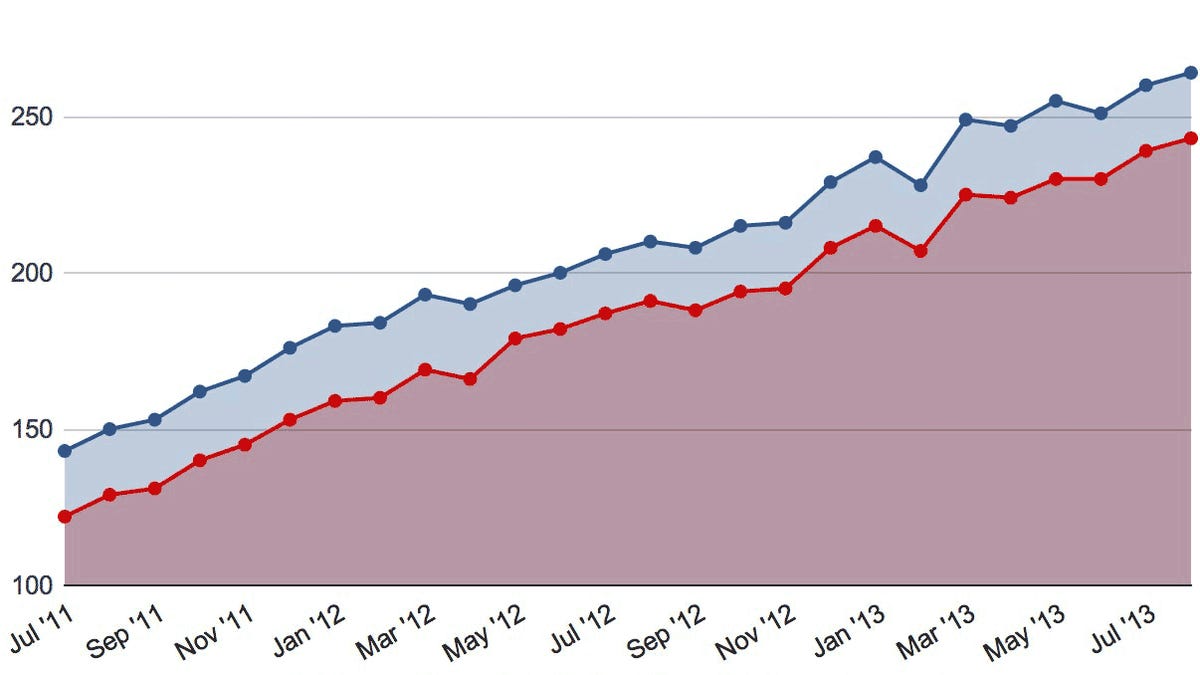Smartphones will kill off Opera Mini? Well, not yet
Sure, the browser whose popularity began in the pre-iPhone era is threatened by Safari and Chrome. But its usage continues to grow steadily.

Feature phones may be doomed, but the Opera Mini browser that's commonly found on them is more than hanging on by a lot more than a thread.
Usage of the browser continues to grow steadily, statistics the Norwegian browser maker released Friday show -- both the number of users and how many pages they visit.
From August 2011 to August 2013, the number of Opera Mini users grew 88 percent from 129 million to 243 million, Opera Software said. And usage grew even faster: the number of pages that Opera transcoded into boiled-down form to be sent to Opera Mini grew 121 percent over the same period from 80 billion to 177 billion.
Opera Mini gained a foothold in the last decade, when mobile phone processors were wimpy, memory was extremely limited, networks were slow, and screens were tiny and not touch-sensitive. One of its prime benefits is that Opera's servers can shrink Web pages significantly so the limited hardware and networks can cope better.
In August 2013, the company's servers compressed what would have been 15 petabytes worth of data down to only 3.7 petabytes that actually had to be sent over mobile phone users' networks.
Browsing became very different when Apple's Safari for the iPhone arrived in 2007, though. It dominates usage statistics along with Android's built-in browser and increasingly a mobile version of Chrome, too. Opera is responding to the trend with its own Android browser, a close relative of Chrome, and with the new Coast browser for iPads.
But Opera Mini, which also is available for iOS and Android, keeps on ticking. It accounts for the vast majority of Opera's browser usage.

